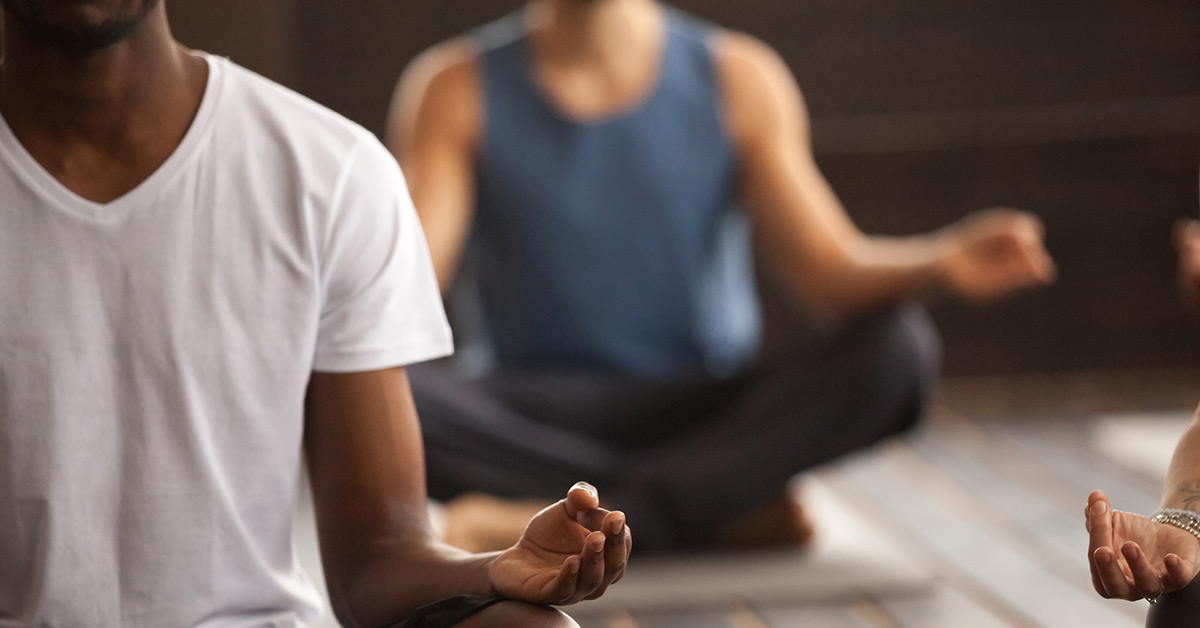Health experts and yoga practitioners know that the practice of yoga can bring relaxation to the body and peace to the mind. New research shows young adults who have experienced abuse, discrimination and other stressful life events, and may be seeking greater relaxation of body and peace of mind, are engaging in yoga. A new study from the School of Public Health recently examined how frequently young adults practice yoga and discovered that people who’ve experienced potentially traumatic life events are equally or more likely than their peers to take part in the activity.

The study, led by Professor and yoga teacher Dianne Neumark-Sztainer, was published in The Journal of Alternative and Complementary Medicine.
“It’s encouraging to see that many young people with a history of trauma are practicing yoga,” says Neumark-Sztainer. “Given the stresses associated with COVID-19, compounded by racism and other events occurring across the country, yoga may be effective in helping people manage this upsetting time as well. Fortunately, there are many options for virtual yoga practice during this time.”
Neumark-Sztainer gathered her data from EAT 2018 (Eating and Activity over Time), a study examining eating, activity, and weight-related health and their associated factors in a population-based sample of young people. The study surveyed a diverse group of 1,568 young adults age 18-26 originally from the Twin Cities in Minnesota. The participants were asked an assortment of questions, including some about their life experiences and participation in yoga.
The study found:
- exposure to adverse events — including childhood adverse experiences (abuse), witnessing or experiencing violence, financial struggles, and ongoing discrimination — was very common in the study’s large, urban-based sample of young adults. For example, 40% of young people reported adverse childhood events and 40% reported concerning levels of discrimination;
- young adults who reported experiencing adverse events also showed that they have significantly higher levels of perceived stress compared to their peers;
- young adults who were exposed to adverse events were found to be equally or more likely than other young adults to engage in the practice of yoga.
“The high prevalence of exposure to adverse events among young adults is alarming,” says Neumark-Sztainer. “While our main goal is to prevent such exposure, interventions are also needed to reduce the potentially harmful effects of such exposure on long-term health.”
Neumark-Sztainer said that previous research shows that yoga has the potential to help people deal with trauma and stress. Given this, she said that it is important for instructors to recognize that many of their students may have a history of exposure to potentially traumatizing events.
“Yoga instructors should be aware that a large proportion of their students may have experienced adverse events in their lives and adjust their teaching accordingly,” says Neumark-Sztainer.
Some strategies that Neumark-Sztainer suggests for those engaging in yoga and their teachers include:
- Begin your practice by asking yourself what you need today; this is also a good practice to take into life “off the mat.”
- While practicing, listen to what your body is telling you, trust yourself, and modify your practice as needed.
- Engage in extensive breath work and try breathing in self-confidence, trust, and a sense of calm.
- As a teacher, avoid being overly prescriptive in your teaching and encourage modification.
- As a teacher, avoid assuming that your students want physical modifications.

